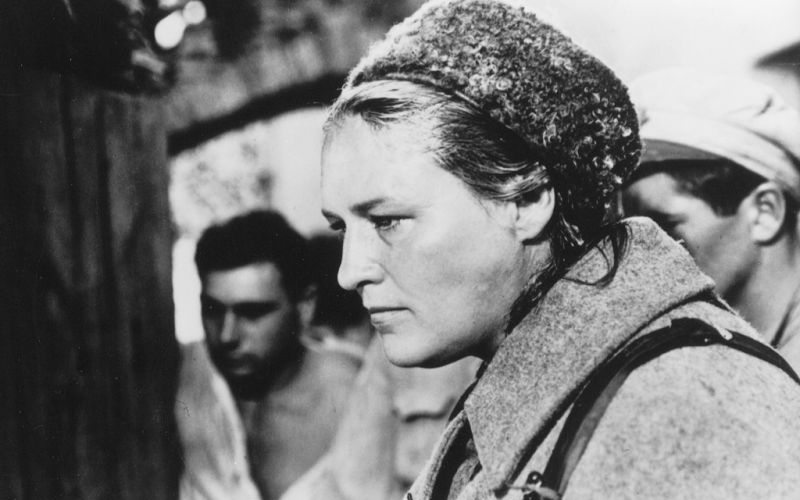A parable that has spent 20 years on the shelf: a pregnant Red Army officer finds shelter in a Jewish family. Screening as part of the retrospective programme of the Festival of Singular Films.
Commissar
- Date:
- 24 Sep 2024,
16:00–17:50
- Age restrictions
- 16+
1967, Aleksandr Askoldov
USSR
109 minutes, Russian
Starring: Nonna Mordyukova, Rolan Bykov, Risa Nedashkovskaya, Vasily Shukshin
The frontline is approaching the city of Berdichev: the Whites are attacking from the West, and the Reds fight back as they slowly retreat to the East. At this moment, Commissar Vavilova—a mighty, statuesque, one-of-a-kind woman of the revolution—must request a 40-day leave of absence. Heavily pregnant, she could give birth at any time, and clearly does not want to do so on the battlefield. Vavilova finds lodgings with the large family of the metalworker Magazanik—and it seems a conflict of world views, cultures and ideas of the future is inevitable.

Shot from Commissar, 1967
Askoldov and his The Commissar didn’t fit any categories: Soviet, anti-Soviet, Semitic or anti-Semitic. His film is a pure trial of the spirit.
— Lev Anninsky, Late Tears: Notes of a Free Film Viewer (2006)
What is perhaps the most radical instance of the awakening of femininity in Soviet cinema is accompanied by a clash not only between gender and ideology in the soul of Vavilova herself, but also between her blind revolutionary fervour and the visionary premonition of disaster seen by the ageing Jew Magazanik. Askoldov even dares to depict this impending disaster, which still lay two decades away, shocking not only the censors of the 1960s, but also the modern viewer.
Other directorial decisions are no less daring: the rich symbolic visions of the heroine which are intercut with the birthing scene, the soundtrack that combines Jewish prayers and Orthodox bells, and Mordyukova’s transformation into a true Madonna of the Revolution. Not surprisingly, the censors were outraged at the director’s audacity—and not only the movie was banned, but Askoldov himself as a director. His career ended with two documentaries about the KAMAZ plant: he was unable to return to directing even in the late 1980s, when The Commissar reached a wide audience and won European prizes.
The screening will begin with a brief speech by the curator in Russian. If you require interpretation into English, please request it at least three days in advance by emailing international@ges-2.org.
The film won a Silver Medal (Special Jury Prize) and the International Film Critic’s Award (FIPRESCI prize) at the Berlin Film Festival (1988).
